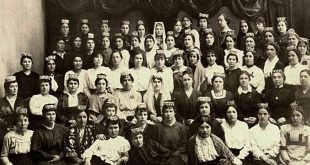The notion of the husband knowing is not a big thing but is one of those things that is blown out of proportion.
In November 2016, the ‘Centro Studio Pentesilea’, in the city of Padova Italy, organised a two-day intensive course on family law for Italian lawyers and solicitors, touching upon adoption, custody of children, alimony, marital agreement and separation. Dr Shomali had originally been contacted to teach in this course but due to other engagements, he asked Sheikh Mirza Muhammed Abbas Reza to attend. Here is an account of what took place and the outcomes.
I flew to Padova to start an intensive one day course. Around 30 people attended this preregistered course which ran from 10 am to 2 pm on Saturday. The event was held in the hotel where solicitors and lawyers, attending the course, as well as I, were staying. I was told that the course forms part of the Italian government initiative to promote understating of legal issues related to Islam and Muslims. It would appear that the Cultural Section of the Iranian Embassy in Italy had been in touch with the organisation and were cooperating to set up this course. In total, there were three courses on family law, and I dealt with Islamic family law. Although most students communicated in English, a translator was always available. My lesson started with an introduction to the four principles of jurisprudence; The Qur’an, the Hadith, the consensus and aql (intellect). Students, mostly lawyers, were fascinated by the topic and the scope of Islamic law and the Sharia and the use of intellectual reasoning. In fact, child custody and alimony are two cases in Islamic law in which discussions are very contextual. We do not have many verses, pointing out to the nitty-gritty of things so we see that there is a need to use aql and the participants really appreciated this fact. As I used slides in my presentations with accompanying translations, it was easy for participants to follow my lesson. The students said that the topic was an eye-opener and that they never realised Islamic law had so much complexity. In one particular issue, for example relating to alimony and day to day personal expenses of the wife, everything falls under the responsibility of the husband. I talked about the many western misconceptions with regards to how women are treated; how society’s expectations of her role and responsibility (cook, clean, obey the husband…) is different from the rights that the law grants her. I tried to clear these misconceptions from their minds. We also discussed the Islamic injunction for women not leave the house without the permission of her husband. To the students, this sounded incredible. But I explained that it is not the case that every time she goes out, she has to ask ‘can I go out?’ The notion of the husband knowing is not a big thing but is one of those things that is blown out of proportion. The other point was the aspect of intimacy and intercourse. I explained that a husband must not be harsh, or use force upon his wife, for example, if she is sick. Obviously, there should be an element of love, joy and kindness and this comes under the teachings of the Sunna of the Prophet and ethics. I pointed out the obligations that a woman has in marriage, and that cooking, cleaning and housework are not among these. We looked into the law of other schools (madhab) such as Shafeie, Maleki, Hanbali and had a comparative look at family law issues. During the Q&A session, people showed concern about mixed marriages, the right of divorce, the case of polygamy, and dowry. I talked about the contract of marriage and the fact that in the contract a woman can stipulate a condition that limits the husband to one wife only. I explained that there is a lot of room for the intellect to play a role and that other factors determine rules such as social norms, culture and the political system under which people live. For example, if the dowry is too high, the husband agrees, but can’t pay and is arrested as a result, the government will implement the standard dowry, not the full amount. The norm of a dowry depends on the status of the girl, and that money has to be paid by the husband if a divorce takes place. The remaining amount from the agreement is between him and God. These types of operations, based upon intellect and considering social norms, play a great role in making the law acceptable and Islamic. The attendees and those involved in arranging the course ere very kind and cultured and I could see a lot of good human values. The person in charge of the course, Mr Adolfo Morganti, said that the course was a success and that he was interested in future cooperation. In fact, they are coming to visit The Islamic College in January and February. I believe a good link has been established.
Shaykh Mirza Muhammed Abbas Reza is the current Manager of the Hawza Ilmiyya of England in London.
source:Islam-today
 Ijtihad Network Being Wise and Faithful Muslim in the Contemporary World
Ijtihad Network Being Wise and Faithful Muslim in the Contemporary World
